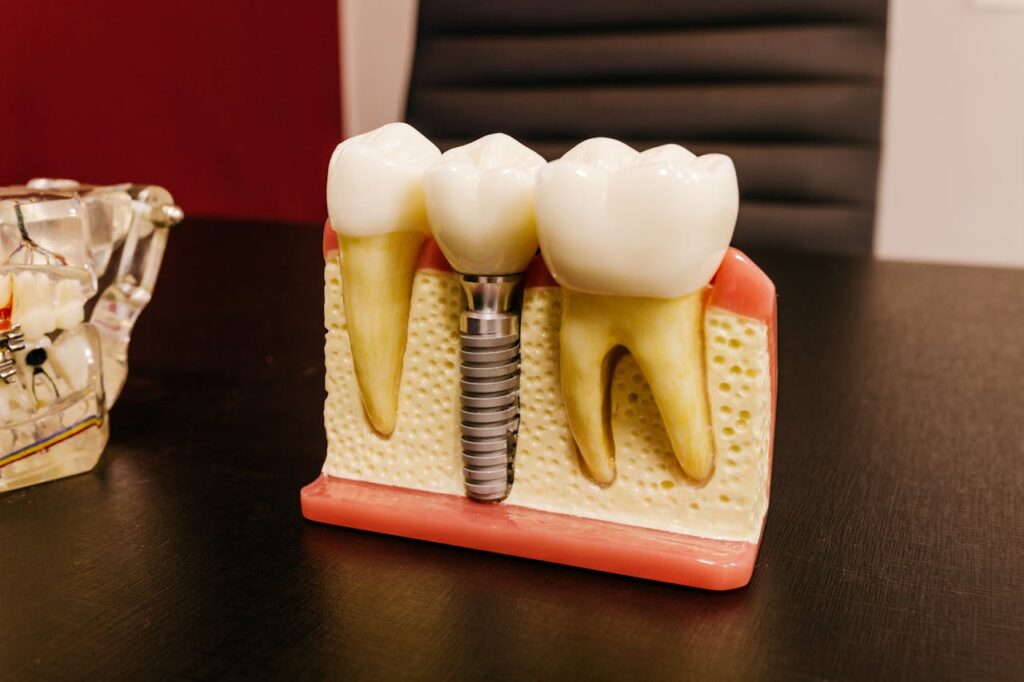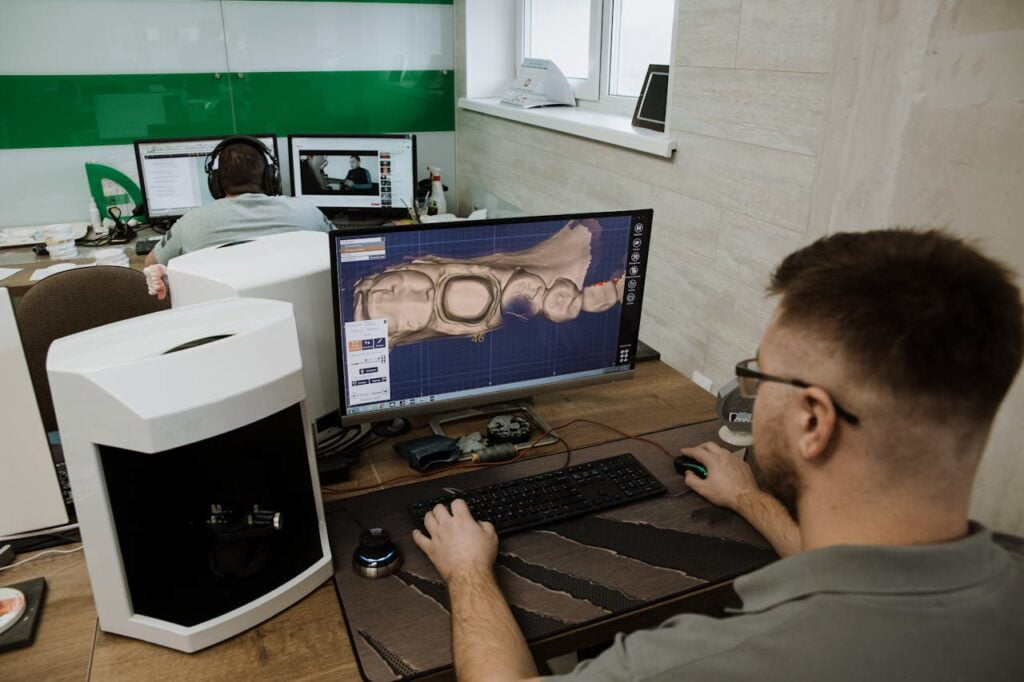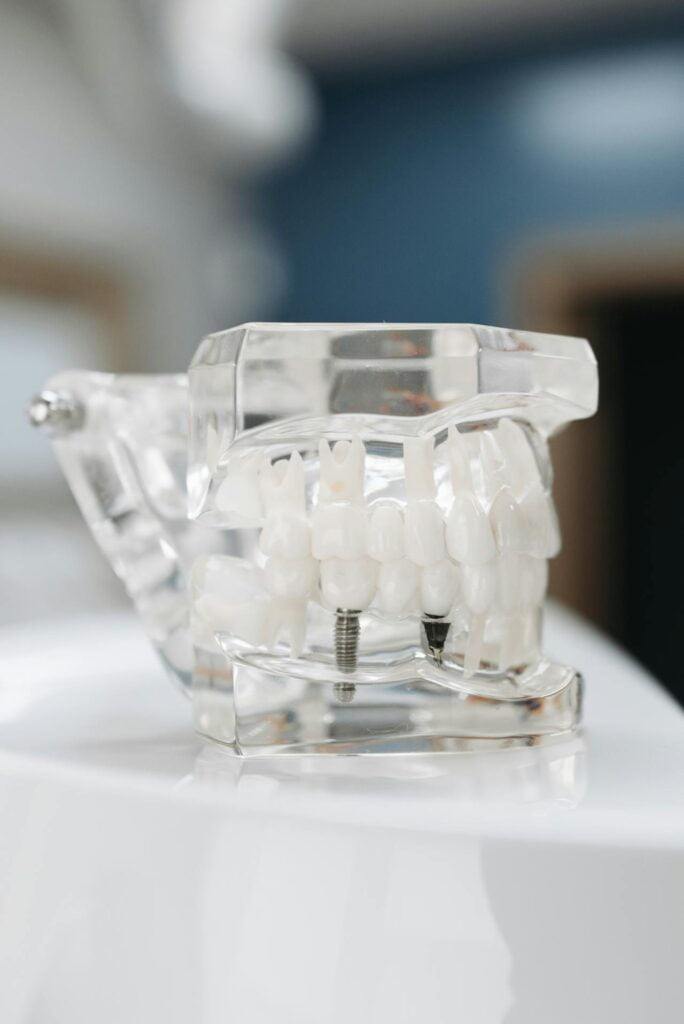
New Smile.
New Life!
New Smile.
New Smile.

Dental implants offer a revolutionary solution for missing teeth, standing out from traditional tooth replacement options like dentures and bridges. Unlike dentures that rest on the gums, dental implants are surgically inserted into the jawbone, serving as a sturdy foundation for new teeth. This innovative approach not only provides a more natural look and feel but also enhances chewing power and overall oral health.
The concept of dental implants has transformed over decades, evolving from simple designs to today’s sophisticated systems that closely mimic natural teeth. Modern dentistry now leverages advanced materials and techniques, ensuring implants are both durable and aesthetically pleasing. This evolution has made dental implants a preferred choice for both dentists and patients seeking to replace missing teeth and restore their smiles.
The journey toward getting dental implants begins with an initial consultation. During this meeting, your dentist will conduct a thorough examination, including x-rays of your mouth and jaw, to determine if you’re a suitable candidate. Factors such as oral health, jawbone density, and overall health are considered to ensure the success of the dental implant procedure.
Dental implant surgery involves several steps, starting with the insertion of the implant into the jawbone. This surgical procedure is typically performed under local anesthesia. After the implant is placed, a period of healing, or osseointegration, occurs, allowing the implant to fuse with the jawbone securely.
In some cases, a bone grafting procedure may be necessary to strengthen the implant site. This is especially true for patients who have experienced bone loss in the jaw. Bone grafting helps to create a solid foundation for the implant, ensuring its stability and longevity.
Dental implants are designed to replicate the function and appearance of natural teeth closely. They provide significant chewing power, allowing patients to enjoy a wide range of foods without the limitations often experienced with dentures. Aesthetically, dental implants blend seamlessly with adjacent teeth, enhancing the smile and facial structure.
One of the unique benefits of dental implants is their ability to preserve the jawbone and prevent bone loss, a common issue following tooth loss. By stimulating bone growth, implants help maintain the natural shape of the face and prevent the sunken appearance associated with missing teeth.

Dental implant surgery boasts a high success rate, but like any surgical procedure, it comes with potential risks and complications. These can include infection, damage to surrounding teeth, and implant failure. However, with proper planning and care, the risks are minimal, making dental implants a safe and effective tooth replacement option.
The healing process following dental implant surgery varies among patients, typically ranging from a few months to half a year. During this time, practicing excellent oral hygiene and following your dentist’s care instructions are crucial for a smooth recovery and the long-term success of your implants.
Maintaining dental implants involves routine oral hygiene practices, such as brushing, flossing, and using antimicrobial mouthwash. These steps are vital in preventing gum disease and ensuring the longevity of your implants.
Regular dental check-ups and professional cleanings are essential to monitor the health of your implants and natural teeth. These visits allow your dentist to address any issues early on and provide guidance on caring for your implants effectively.

While the upfront cost of dental implants may be higher than other tooth replacement options, their durability, functionality, and natural appearance make them a worthwhile investment. Over time, dental implants can prove more cost-effective due to their long lifespan and minimal maintenance requirements. While most insurance do not cover dental implants, there are many financial options available for many people.
Considering the lifetime value, dental implants often emerge as the best tooth replacement option. Unlike dentures and bridges that may need replacement or adjustments over time, mostdental implants can last a lifetime with proper care. This permanence not only enhances comfort and confidence but also eliminates the recurring expenses and inconvenience associated with other tooth replacement options.
Determining if you are a suitable candidate for dental implants involves evaluating several factors, including your oral health, the density of your jawbone, and your overall health status. Conditions such as uncontrolled diabetes or severe gum disease may affect the success of the implant. Therefore, it’s crucial to have a comprehensive evaluation by a dental professional.
If you’re considering dental implants, consulting with a dentist or even seeking a second opinion can provide valuable insights. A thorough assessment will help you understand the procedure, potential risks, and whether dental implants are the best option for your specific needs.
Dental implants offer more than just a solution to missing teeth; they restore smiles, confidence, and the ability to enjoy life without the limitations of tooth loss. By closely mimicking natural teeth in function and appearance, dental implants can significantly enhance your quality of life.

If you’re ready to explore dental implants as a tooth replacement option, the first step is to schedule a consultation with a qualified dentist. During this initial visit, your dentist will create a personalized treatment plan tailored to your specific needs, ensuring you are fully informed and comfortable with the journey ahead.
5. How do I care for my dental implants after the procedure? Maintain oral hygiene with regular brushing and flossing, avoid hard and sticky foods, and attend routine dental check-ups. Proper care can make implants last a lifetime.
Texas Sedation Dental & Implant Center can perform minor, or major procedures for patients in need. Our goal is to provide exceptional oral health, overall, for all. It’s recommended to schedule an appointment with your Dentist if you are experiencing any of concern. To learn more about bone grafting, or dental implants, contact us today at our Longview (903)704-0154. or Tyler Office (903)597-2201.